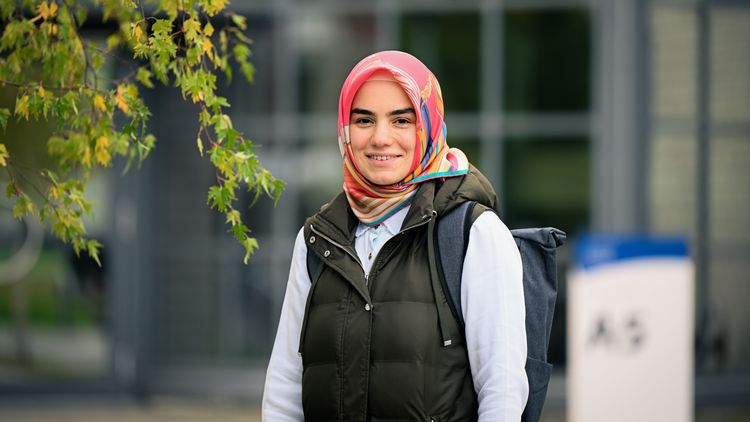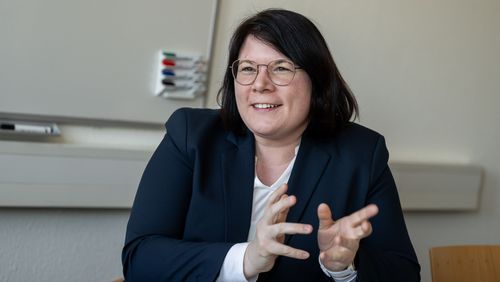Around 1,900 students started their studies at the University this autumn – many with the goal of becoming a teacher. What most of them take for granted is something very special for Esra Yasin, who is starting her Bachelor’s degree in teaching here. Below, she explains why.
I dream of teaching German – even though German is not my mother tongue. I come from Turkey and taught history there. But my husband and I had to leave our home country for political reasons, so we fled across the sea to Greece in a boat with our two small children.
My family and I have been living in Germany for four years now. In the beginning we lived in a refugee camp near Hanover. After a short time in Oldenburg we moved to Wymeer in the district of Leer. We lived there for three years and felt at home there. I attended language courses at the adult education centre and our children went to kindergarten and primary school.
But both I and my husband, who is a maths teacher, wanted to go back to teaching. I’m passionate about teaching. But my degree as a history teacher is not recognized here – also because after graduating I worked at a private school and didn’t do a postgraduate traineeship. That's why I decided to study again. We looked for a university where my husband could earn a degree to teach a second subject at secondary school and I could study to become a primary school teacher. That's how we came to Oldenburg. Because here you can do both.
After a long search, we found a flat near the campus. I took a B2 language course at the university in which I learned a lot about scientific writing and speaking. The teachers were very nice and well-prepared. They taught me a lot. Then in the summer semester I took the C1 course, which, like the B2 course, is part of the INSTEP programme. I needed my language certificate before July 15th to be able to apply to study. I worked hard and spent a lot of time in the library. I also took a pronunciation course. That was very helpful, but also difficult.
In addition to the language courses, I also attended lectures in German Studies as a guest student. I wanted to get an idea of what studying here is like. I didn't know the difference between seminars and lectures, for example. Now I know. And in Istanbul all the lectures for history students were held in the same building. Here there are many different buildings and students have to walk around the campus a lot.
Now I’m enrolled and beginning my studies for a degree in teaching German and general studies at primary school. I like teaching schoolchildren, learning from the children while teaching. A good knowledge of German is essential for this task, so I want to study German studies and master all aspects of the language.
I also find it helpful that I have a migration background. Germany is an immigration country; there are many foreign schoolchildren here. I did practical training at a primary school in Weener. There was a pupil from Romania who was just as tongue-tied as I was. I knew exactly how she felt. If I manage to become a teacher here, it will not just be for me, but also for Germany.”
Written down by Constanze Böttcher




